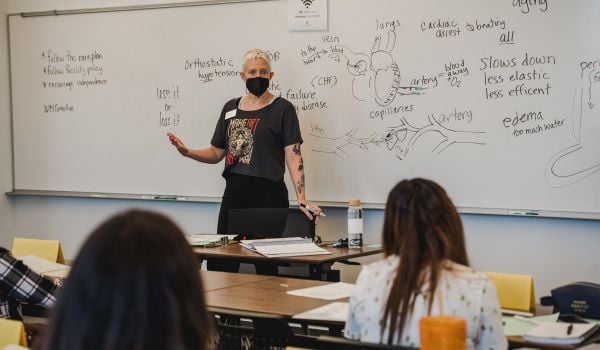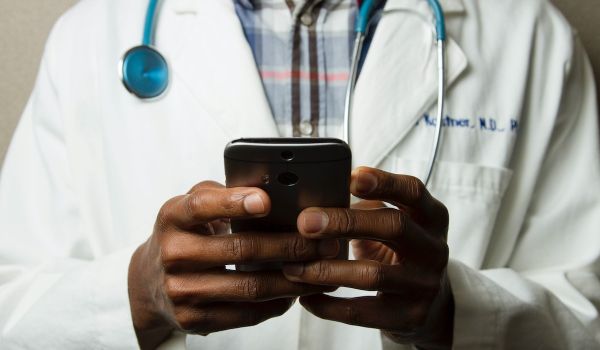St. Paul City Councilmember Dai Thao was about five or six when he became a refugee. As members of the Hmong ethnic minority in Laos, his family was among many escaping persecution from the Laotian government. He lost two sisters and a brother on the way to Thailand. The family eventually found asylum in Minneapolis, part of a wave of Hmong refugees to the Twin Cities, including some of their extended family. That was 1983. Thao was eight years old.
For their first few months in America, Thao, his parents, three surviving sisters and three surviving brothers squeezed into a two-bedroom apartment, until they got placed in public housing. The complex where he grew up has since been demolished and replaced, part of a wave of demolition resulting from a mid-1990s lawsuit over poor conditions in Minneapolis public housing.
The first time Thao experienced racism in America, it was on the school bus.
“I was called ‘chink’ or ‘gook,’ kids would spit on me” he says. “It was so bad one time, the bus driver moved me up to the front seat to keep an eye on me.”
Faith has been a source of strength for Thao over the years, as well as a source of strategy. He was especially inspired by biblical stories of leading by example and sending out apostles to change the world.
“Leadership really depends on how many quality leaders you develop,” says Thao, who became the city’s first Hmong councilmember in 2013. “I’m not Jesus Christ, but that’s what I learned.”
He would never consider them his apostles, but Thao is now recruiting leaders to serve on St. Paul’s new Responsible Banking Committee, a volunteer group created to help the city select a new bank to handle its day-to-day and other banking needs. With its current contract with U.S. Bank set to expire at the end of this year, the city issued a request for proposals for a new banking contract on Feb. 1, and the deadline to respond is March 31.
“The committee will be made up of folks from the community that deal with housing and other advocacy work,” Thao says. The Council will make the final decision on committee members, and is working with advocacy organizations such as Jewish Community Action to find and recruit committee members.
A 2015 study from the University of Minnesota’s Humphrey School of Public Affairs partly inspired the City Council to create the Responsible Banking Committee. The study analyzed the 50 largest banks in the Twin Cities area and found significant racial discrimination in home mortgage and small business lending. It also created a letter grade system to indicate the relative level of discrimination in lending. U.S. Bank, which currently handles St. Paul’s banking needs, scored a D+. Wells Fargo, which handles Minneapolis’ city banking needs and remains the focus of #NoDAPL protests and continued fallout from its fake accounts scandal, scored a C-. Only five banks scored at least an A-, three of them in the bottom 10 of the 50 rated in the report.
“My message to banks is, I appreciate them, but at the same time if we’re doing business with a bank that’s enabling poverty and other problems in the community that we’re trying to solve as a city, that just doesn’t make sense,” Thao says.
This RFP is the first conducted under St. Paul’s responsible banking amendment, whose passage Thao also spearheaded, back in 2014. The committee is an outgrowth of that amendment, which specified a new process for the periodic selection of a bank to handle the city’s day-to-day and other regular banking needs. Under the new process, the city would henceforth take a bank’s community impact into account, in terms of fair lending, equitable access to banking services and other aspects, when selecting a bank to handle its needs.
As before, banks will submit proposals to the city’s Office of Financial Services, which will evaluate proposals internally using a weighted points system, with availability of required services the most heavily weighted section, worth 575 out of a possible 1000 points. Some of the required services include automated cash management, echeck services, standard collection and deposit, remote deposit, disbursal services, and also prepaid or stored-value cards, which the city uses for temporary and seasonal worker payroll. The city’s RFP lists 10 accounts it will need to open and operate, subject to change at any point.
The responsible banking amendment added a “Responsible Banking Questionnaire” to the proposal process. It requests information from banks responding to the proposal, such as number and amount of small business loans to women- or minority-owned businesses in St. Paul; loans to businesses with revenues over and under $1 million; foreclosure prevention policies; policy for foreclosed vacant and abandoned residential property including options for repurchase, rehabilitation and re-occupation.
Curiously, the responsible banking amendment says the questionnaire is required, and Thao asserts the same, but the RFP documents and the questionnaire itself say it is voluntary and not required. The St. Paul Office of Financial Services also assigned zero points to the questionnaire results as part of scoring proposals. (I have asked Todd Hurley, director of the Office of Financial Services, about this discrepancy via email, but he hasn’t yet responded.) Todd Hurley, director of the Office of Financial Services, told Finance & Commerce that he will talk over the selection with committee members and “take into consideration what that committee has to say.”
There remains some concern that banks may sue St. Paul to overturn the responsible banking amendment. A judge struck down a much stronger responsible banking ordinance in NYC, back in August 2015. Thao says the creating the committee was in some ways a compromise, letting the public have a say on the process while still giving the Office of Financial Services the final power to select a contract.
“It’s important to understand that the win here is that when there’s data, the community can talk about the data and the bank can talk about that data,” Thao adds. “Having the combination is very powerful.”
For the city to bank with a community bank could make a huge difference, says David Reiling, CEO of Twin Cities-based Sunrise Banks. It has done so, before. In an earlier program no longer in place, St. Paul placed deposits into an account at Sunrise Banks. Reiling estimates they were able to leverage those funds into loans worth 10 times the value of the deposits themselves. And as a federally certified community development financial institution, no less than 60 percent of Sunrise Banks’ lending is required to go into low- to moderate-income census tracts.
Sunrise Banks also competed for and won $70 million in New Markets Tax Credits last year. A huge influx of city deposits would make it easier to deploy those tax credits, Reiling says, which are 100 percent required to benefit low- to moderate-income households by creating jobs and other economic development in historically under-invested areas.
Sunrise plans to put in a proposal to takeover banking for St. Paul. But even if they don’t win, Reiling would be happy with almost any community bank winning.
“We think it’s important that tax dollars and other money from the city’s residents sleep in St. Paul,” he says.
The Equity Factor is made possible with the support of the Surdna Foundation.

Oscar is Next City's senior economic justice correspondent. He previously served as Next City’s editor from 2018-2019, and was a Next City Equitable Cities Fellow from 2015-2016. Since 2011, Oscar has covered community development finance, community banking, impact investing, economic development, housing and more for media outlets such as Shelterforce, B Magazine, Impact Alpha and Fast Company.
Follow Oscar .(JavaScript must be enabled to view this email address)

















